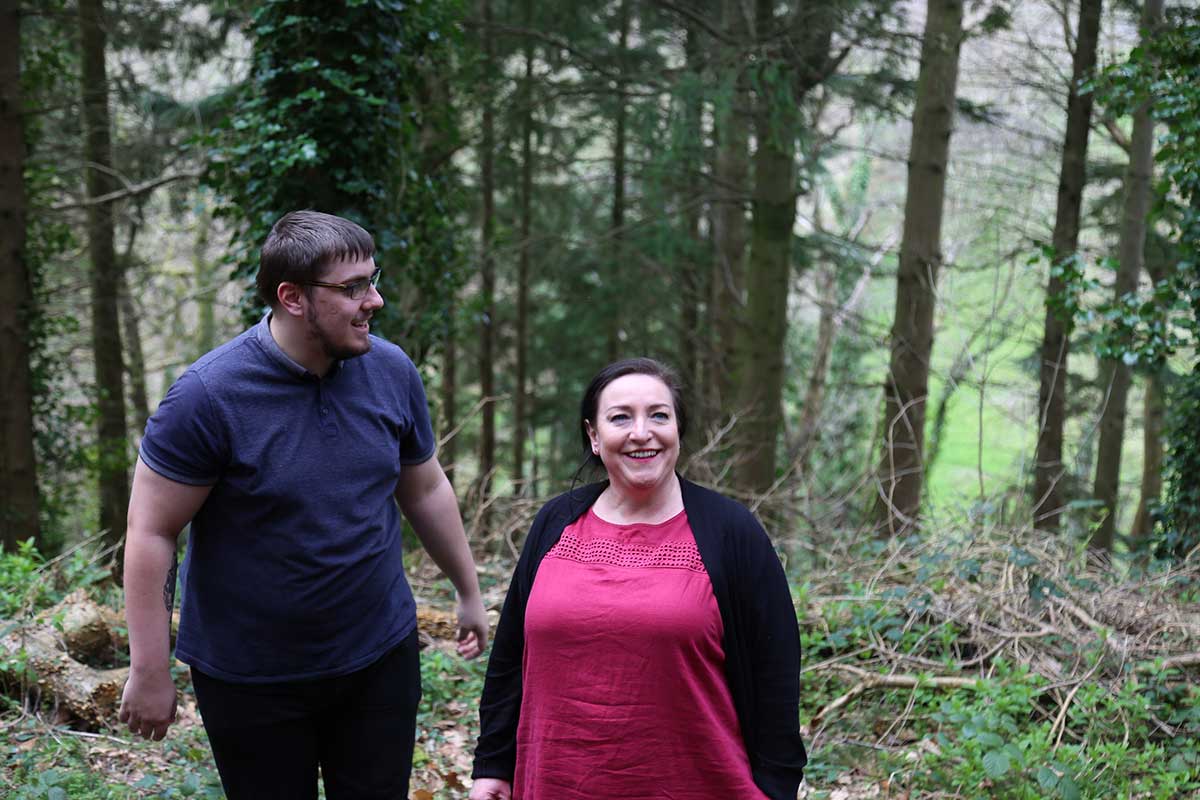Students Sharpen Animal Field Signs Skills With Badger Tracking Trip
A group of students based at the Northop campus of Wrexham Glyndwr University have been shown how to find tracks and signs left by badgers on a field trip.
The field trip – in the Flintshire countryside around the Northop campus – showed students how to detect signs that badgers were in an area, including the mammals’ use of paths, indicators such as fur and markings, as well as sett entrances and exits.
It was led by student Josh Lambert, from Connah’s Quay, who is running a research project into the lives of urban and rural badgers in Flintshire as part of the third year of his Animal Studies BSc.
He said: “What I wanted to show everyone today were the field signs which let you know animals are around – that’s any sign I could point out which lets you know what animals are in an area and how they are living their lives – basically, the field signs which show creatures are around.
“Work like that has really helped with my third year project looking into the differences in the lives of badgers in Flintshire. I’ve used skills such as looking at field signs alongside a camera trap – which is gathering some really good footage to show us what badgers’ lives are like!”
Badgers are not the only creatures Josh’s project has captured on film – one evening recently a polecat was captured as part of his recording. You can see that footage here: https://drive.google.com/file/d/1NOsnywTkWz66cB9Fj7a9DjFKhd8PjWzl/view
Lecturer in Animal Science and Conservation at Wrexham Glyndwr University, Denise Yorke, said: “Developing your knowledge of field signs is an extremely useful skill for our students – and for anyone who wants to know more about our British wildlife.
“It is one of the skills we will be teaching as part of our Introduction to British Wildlife Course, which launches at the Northop campus on May 14. The course is aimed at anyone who wants to find out more British wildlife – why we have the species we do, how they have changed over time – and how to spot the signs they leave as they live their lives.
“It’s led by experts in their field, and over six evening weekday sessions and three weekends, participants will get the chance to build their knowledge of our wildlife – both in the classroom and out in the field.”
To find out more about the course, and to book your place, please visit: https://www.glyndwr.ac.uk/en/ShortCourses/IntroductiontoBritishWildlife/
Notes
Founded in 2008, Wrexham Glyndwr University is a young, bold and vibrant university based in north-east Wales. The university has two campuses in Wrexham, Plas Coch and Regent Street plus campuses in Northop and St Asaph. In 2017 the university was awarded the silver award in the Teaching Excellence Framework for the quality of teaching.
The university is driving academic excellence through a wide range of innovative and industry-relevant courses, such as Applied Science, Computing, Engineering, Creative Arts, Criminology and Psychology. Wrexham Glyndwr is now a Top 100 University, rising 24 places in the Guardian league tables – one of the top 10 risers in the UK. The Campus 2025 strategy encompasses plans for new student accommodation, car parking and upgraded facilities in the next eight years.
